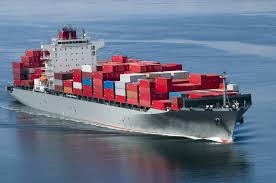记忆方法
1. 我数一数有几辆车。
中文词源
freight 货运,运费
来自Proto-Germanic*fra-aigan, *fra, 整个的,*aigan, 拥有,所有,词源同own.即所有物,装上船的,发货的。其原义仅指水运或船运,后词义通用化。
英语词源
- freight
-
freight: see fraught
- freight (n.)
- early 15c. "transporting of goods and passengers by water," variant of fraght, which is from Middle Dutch or Middle Low German vracht, vrecht (see fraught). Danish fragt, Swedish frakt apparently also are from Dutch or Frisian. Also from Low German are Portuguese frete, Spanish flete, and French fret, which might have changed the vowel in this variant of the English word. Meaning "cargo of a ship" is from c. 1500. Freight-train is from 1841.
- freight (v.)
- "to load (a ship) with goods or merchandise for shipment," mid-15c. variant of Middle English fraught (v.) "to load (a ship)," c. 1400; see fraught, and compare freight (n.). Figuratively, "to carry or transport," 1530s. Related: Freighted; freighting.
权威例句
- 1. On the customs declaration, the sender labeled the freight as agricultural machinery.
- 在报关单上,寄货人将货物列为农用机械。
- 2. The railways will carry a far higher proportion of freight traffic.
- 铁路将承担比例高得多的货运量。
- 3. Environmental pressures are strengthening the case for waterborne freight.
- 环境的压力使人们更加认可水上运输。
- 4. to send goods by air freight
- 空运货物
- 5. Freight trains travel slowly on upgrades into the hills.
- 火车徐徐向山上驶去.

